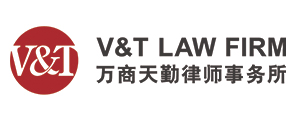Since the inception of the PRC’s infrastructure concession model with the pioneering Laibin power plant in Guangxi, the concession model has spread to all infrastructure sectors, from waterworks, highways, subways, bridges, railways and ports to urban utilities and sports stadiums. However, shortcomings in the law governing concessions contrast sharply with the situation in practice, and have become the major impediment to the healthy development of infrastructure concession projects.
Current status of the legislation
Low in the hierarchy of legal force

Managing Partner
V&T Law Firm
There are currently no laws or administrative regulations which aim to regulate infrastructure concession activities. Existing legal provisions are at the level of ministerial rules and regulations, and local legislation. Among them, the only regulations that have national reach are the Urban Utility Concessions Administrative Measures issued by the former Ministry of Construction. Based on these Measures, provinces and municipalities in turn have issued regulatory documents governing local urban infrastructure concessions. Additionally, relevant ministries and commissions of the State Council have issued some policy documents, such as the Fostering and Developing General Contractors and Project Management Enterprises Guiding Opinions issued by the Ministry of Construction in 2003, and the Strengthening East-West Interaction to Extensively Promote the Large-Scale Development of Western China Opinions issued by the National Development and Reform Commission and Ministry of Finance in 2007, which encourage enterprises to participate in the construction of major highways, railways, airports, ports and other such infrastructure by way of BOT (build-operate-transfer) and TOT (transfer-operate-transfer) models. However, while the policy guidance character of the above Measures and Opinions is strong, they are low in the hierarchy of legal force. Accordingly, in the event of a conflict with other laws or regulations, they generally cannot be implemented.
Poor workability
The existing regulatory documents set forth relevant provisions governing the method of implementation of, and the operating procedures for, infrastructure concession projects. However, provisions on the operation and transfer stages of such projects are few, resulting in a lack of a practical operational basis. For example, solely from the definition of the concession model given in article 2 of the Measures, it is impossible to determine whether the concessions mentioned in those Measures cover the BT (build-transfer) model. Nobody knows whether this regulatory document applies to the large number of BT infrastructure concession projects that exist in practice.
Practical legal bottlenecks
Land use rights
There is a conflict between the method of granting infrastructure concessions and current policies on the granting of land use rights. Pursuant to current PRC laws, commercial land use rights must be secured by an invitation for bids, an auction, or a listing on a land exchange. However, when government grants an infrastructure project to a concessionaire by any of these methods, it is impossible to ensure that the concessionaire will win the bid to secure the land use rights required for the project. This conflict has been particularly salient in underground rail projects, one example being the Hong Kong MTR Corporation’s inability to secure the land committed to in the BOT bid invitation documents for the fourth line of the Shenzhen subway.
Tax concessions
The bid invitation documents for concession projects may contain undertakings concerning the reduction of or exemption from certain taxes. Because they lack legal support, however, undertakings of this nature are often rejected by the competent tax authority in practice. This can badly damage investor sentiment and confidence.
Vesting of title to projects
Whether a concessionaire has ownership of a project that it has financed, built and operates during the concession term is an issue that is not expressly addressed in current laws. In negotiations over concession agreements, local governments regularly deliberately fudge or refuse to negotiate this issue. This means that title to project assets often valued at several hundreds of millions of RMB remain in limbo for the concession term. Obviously, this is not conducive to the efficient use of assets.
Compensation upon termination
If the government recovers a concession early during the concession term, the rights and interests of the investors will suffer tremendous harm. There should be legislation that expressly specifies the method for compensating investors for losses they incur. Unfortunately, current regulations fail to address this issue in any practical manner.
Another legal black hole at present is whether any compensation paid by the government should be taxed as operating revenue of the enterprise.
Financing by project company
According to standard international practice, a project company can pledge its right to collect the fees from an infrastructure concession or the right to receive government buyback money (i.e. accounts receivable) to a bank for a loan. This is the basis of project finance. Although judicial interpretations of the PRC Security Law permit such accounts receivable of an infrastructure concession project to serve as the subject of a pledge of rights, current PRC laws do not expressly address this. As a result, when a PRC commercial bank makes a loan to a project company, it will usually require the project company’s parent to provide additional security. This greatly increases the project company’s financing costs and can even result in its failure.
The Encouraging and Guiding the Healthy Development of Private Investment Several Opinions (Guo Fa [2010] No. 13), issued by the State Council this year, strongly encourage the investment of private capital in the infrastructure sector. It is hoped that the relevant state authorities will soon strengthen the regulation, administration and guidance of infrastructure concession projects and provide investors with a good legal environment and development environment.
Wang Jihong is the managing partner of V&T Law Firm. She practises in the field of infrastructure development
F3, Tower A, Huaye International Center
39 Dongsihuan Zhonglu, Chaoyang District
Beijing 100025, China
Tel: +86 10 8225 5610
Fax: + 86 10 82255600
E-mail: wangjihong@vtlaw.cn
www.vtlaw.cn






















